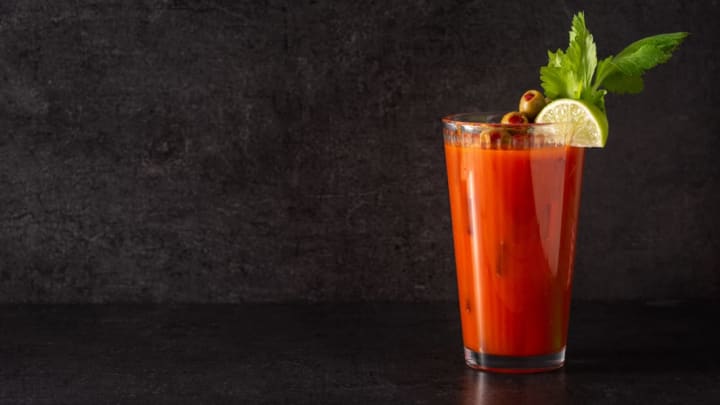The morning after St. Patrick’s Day, a wedding, or some other alcohol-soaked festivity, you might be inclined to tip some whiskey into your coffee or vodka into your orange juice; in other words, combat your hangover with more alcohol, a tactic known as hair of the dog. But why do we call it that, and—more importantly—does it actually work? Read on to find out.
What Does Hair of the Dog Mean?
The full phrase is hair of the dog that bit you, which helps shed a little light on its origins. As Cosmopolitan reports, people used to think drinking a concoction containing some hair of the rabid dog that bit you—or applying the hair directly to the wound—would cure the rabies you just contracted. (It does not.)
It’s not clear exactly how the phrase ended up becoming a euphemism for “Drinking more of the alcohol that made you so hungover will cure that hangover.” But what we do know is that it happened at least 475 years ago. According to the Oxford English Dictionary, the earliest known reference to hair of the dog as a hangover remedy is from a 1546 collection of proverbs by John Heywood: “I pray they let me and my fellow have a hair of the dog that bit us last night—and bitten were we both to the brain, alright” (paraphrased from Heywood’s 16th-century English).
Does Hair of the Dog Really Work?
When your pounding headache and upset stomach have you hunting for a hangover cure, however, you’re probably less interested in the history of the adage and more concerned with its efficacy.
There’s a lack of scientific evidence to support the theory that fighting booze with booze actually works. The general idea is that since hangover symptoms set in once your body has processed the alcohol, you can forestall them by simply giving your body more alcohol to process. But you can’t keep drinking forever.
“When you eventually stop drinking and your blood alcohol levels return to zero, the hangover will return. In some sense, ‘hair of the dog’ delays the time until you experience a hangover—but it cannot prevent it entirely,” Dr. Alka Patel told Cosmopolitan.
And because you’re filling up your already-spent system with more alcohol, there’s a good chance your eventual hangover will be even worse. “It could make you feel better in the short term, but it’s just prolonging the inevitable withdrawal,” Dr. Abisola Olulade told Refinery29.
Instead, you’re better off trying one (or all) of these science-backed hangover remedies.
[h/t Cosmopolitan]
